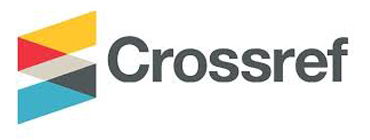What Makes Students' Reluctance in Speaking English at Mawaridussalam Islamic Boarding School?
Abstract
The research conducted was entitled " WHAT MAKES STUDENTS’ RELUCTANCE IN SPEAKING ENGLISH AT MAWARIDUSSALAM ISLAMIC BOARDING SCHOOL?" which was motivated by students' reluctance in speaking English. This research uses qualitative methods. The data of this research is the result of observation, interview. Researchers collected data sources obtained from students. The data of this research are participants and sources. The main data came from in-depth interviews with students. After analyzing the data about what makes students reluctant in speaking English, there are several findings in this study, namely: shyness in speaking English, fear of being mocked by friends, and lack of understanding of English.
Full Text:
PDFReferences
Bossio, D., & McCosker, A. (2021). Reluctant selfies: Older people, social media sharing and digital inclusion. Continuum, 35(4), 634-647.
Hansen, S. L., Pfaller, L., & Schicktanz, S. (2021). Critical analysis of communication strategies in public health promotion: An empirical‐ethical study on organ donation in Germany. Bioethics, 35(2), 161-172.
Hastuti, D., & Rini, S. (2023). Exploring the Intricate Interplay: Language and Thought in Philosophy Review. Scripta: English Department Journal, 10(1), 160-165.
Hayran, C., Anik, L., & Gürhan-Canli, Z. (2020). A threat to loyalty: Fear of missing out (FOMO) leads to reluctance to repeat current experiences. PLoS One, 15(4), e0232318.
Kariapper, R. K. A. R., Samsudeen, S. N., & Fathima, S. (2020). Quantifying the impact of online educational system in teaching and learning environment among the teachers and students. Solid State Technology, 63(6), 12118-12132.
Kulikowski, K., Przytuła, S., & Sułkowski, Ł. (2022). E‐learning? Never again! On the unintended consequences of COVID‐19 forced e‐learning on academic teacher motivational job characteristics. Higher Education Quarterly, 76(1), 174-189.
Namaziandost, E., & Nasri, M. (2019). A meticulous look at Long’s (1981) interaction hypothesis: does it have any effect on speaking skill. Journal of Applied Linguistics and Language Research, 6(2), 218-230.
Rahma, R. A., Zulkarnain, Z., Desyanty, E. S., & Wahyuni, S. (2019). The role of community learning center (CLC) in providing nonformal education services based on entrepreneurship. Journal of Nonformal Education, 5(2), 109-116.
Rao, P. S. (2019). The significance of writing skills in ell environment. ACADEMICIA: An International Multidisciplinary Research Journal, 9(3), 5-17.
Shegebayev, M. (2023). Rise of English as Business Lingua Franca at the Turn of the Century: An Overview. Language, Society and the State in a Changing World, 357-365.
Sutton, A., & Crobach, C. (2022). Improving self-awareness and engagement through group coaching. International Journal of Evidence Based Coaching & Mentoring, 20(1).
Utami, E. A. R., Ratnadewi, D., & Yunianti, S. (2020). The Language Attitude of Islamic Boarding School Students toward English. Journal of Education and Learning (EduLearn), 14(2), 168-175.
Refbacks
- There are currently no refbacks.

This work is licensed under a Creative Commons Attribution-NonCommercial-ShareAlike 4.0 International License.
INDEXING
Bright Vision by UIN Sumatera Utara Medan is licensed under a Creative Commons Attribution-NonCommercial-ShareAlike 4.0 International License.
Based on a work at http://jurnaltarbiyah.uinsu.ac.id/index.php/brightvision.









